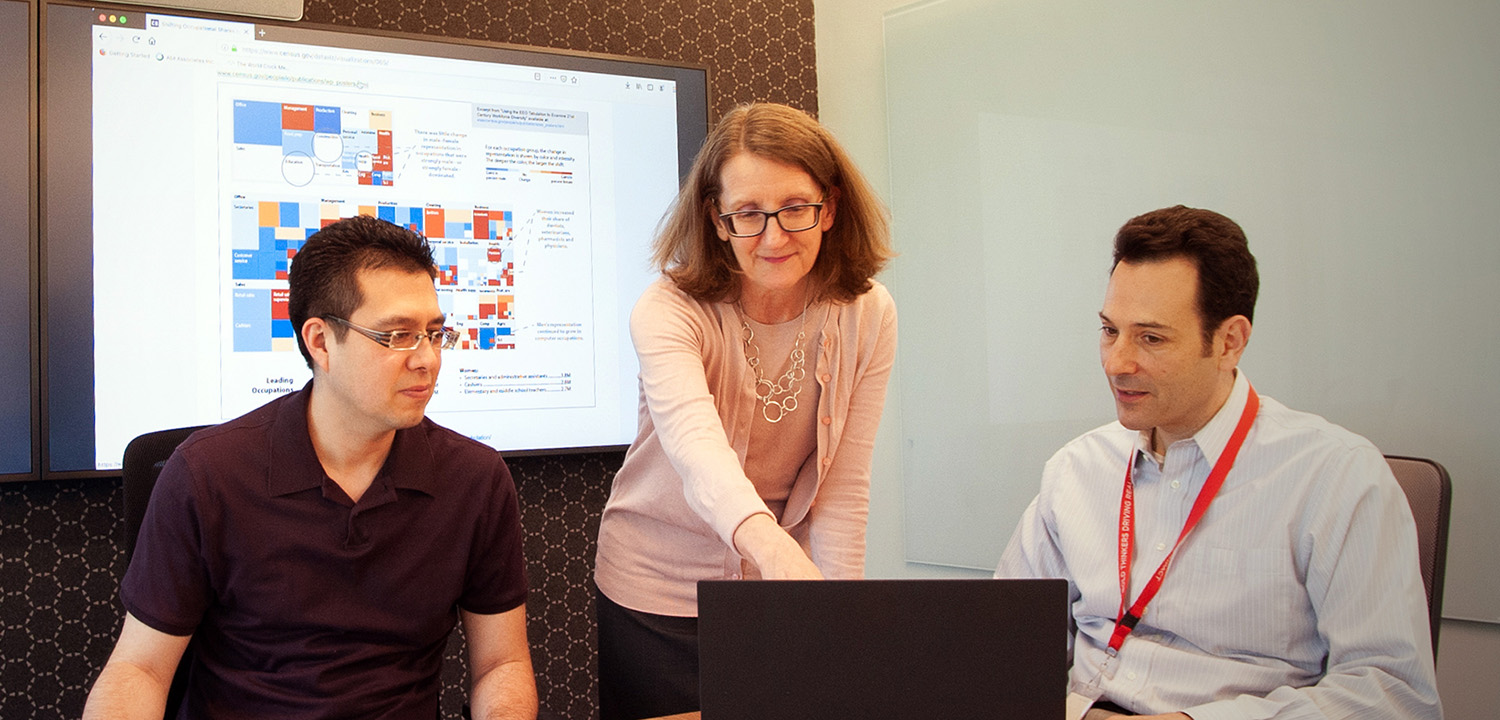Spotlight On: Disability Policy & Research

People with disabilities want to provide for their families and have fulfilling work and personal lives. There are a wide array of public policies and programs designed to help people with disabilities overcome barriers to the labor market. These policies and programs can have mixed outcomes: effective in some areas but failing to address all the obstacles and sometimes inadvertently creating new challenges for the people they are supposed to serve.
Abt helps clients improve their policies and programs with objective research and implementation support in the areas of employment, income supports, education, housing and health. For example, in 2018, Abt completed the largest social policy experiment in the Social Security Administration’s history to help determine if allowing disability insurance beneficiaries to keep more of their benefits motivates them to increase work effort and earnings.

Who We Are
Abt Global’s disability team of professionals is a multi-disciplinary group of experts in labor economics, evaluation methods, health policy research, survey methodology, qualitative analysis, quantitative analysis and information technology. The team brings expertise in disability determination, work incentives, early intervention, program costs, assistive technology and family and medical leave policies.
Our experts come from across the company and work in Abt’s Workforce & Economic Mobility, Health and Housing, Communities & Asset Building focus areas. Meet some of our leaders in disability policy and research:

What We Do
Abt’s disability team applies rigorous research methods to inform policy decisions for government clients, including the Social Security Administration, Centers for Medicare and Medicaid Services, Department of Labor, Department of Veteran’s Affairs, and state health and human service departments. Committed to improving the economic well-being and social inclusion of people with disabilities, we focus on initiatives that promote return-to-work, early intervention after illness or injury and community-based long-term services and supports for people with disabilities.
Over the past two decades, Abt has completed dozens of evaluation, implementation and technical assistance projects aimed at improving outcomes for adults and children with disabilities. The common thread through these diverse projects is objective research grounded in thorough understanding of the policy and programmatic landscape.
Testing and Evaluating New Disability Policies
Abt’s disability team is known for its expertise in a range of experimental and non-experimental research methods for impact analysis. For the Social Security Administration (SSA), Abt and a team of partners recently completed one of the largest social experiments ever conducted, producing national evidence about the effects of a $1 for $2 benefit offset on SSDI beneficiaries’ return to work efforts and disability benefits. Findings from this study, the Benefit Offset National Demonstration (BOND), helped SSA answer the question “Does allowing SSDI beneficiaries to keep partial benefits when engaging in substantial gainful activity motivate them to increase their work effort and earnings?”
Implementing Programs in the Context of a Demonstration
Abt’s implementation experts help clients implement and test new policy and program approaches. Our in-depth understanding of programs and our implementation experience inform our evaluations of whether projects are effective. Our team is applying its knowledge of SSA program operations and beneficiary population to implement SSA’s Promoting Opportunity Demonstration, which studies the effect of an alternate set of work incentives for SSDI beneficiaries.
Surveying and Interviewing People with Disabilities
Abt has been collecting survey data from SSDI beneficiaries and other individuals with disabilities since the 1990s. Over the decades, our survey experts have continuously refined and improved our procedures to develop, test and field survey questionnaires for people with a range of disabilities. The result is that our data capture techniques consistently produce high response rates and complete data, ensuring a solid evidence base for evaluation findings.
Contact Us








